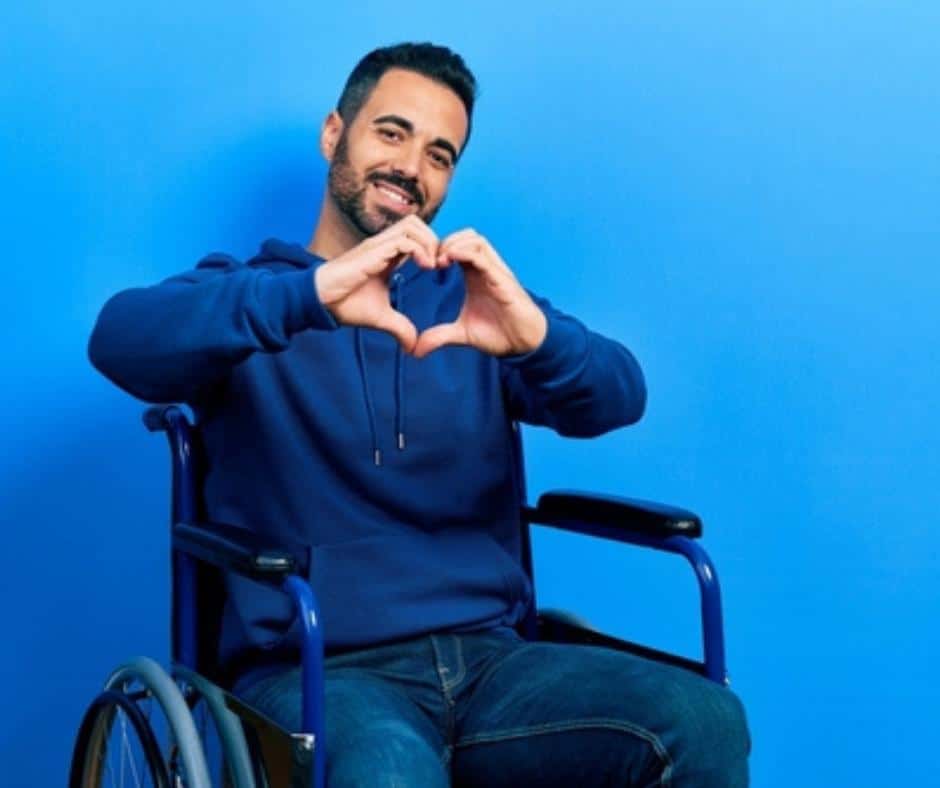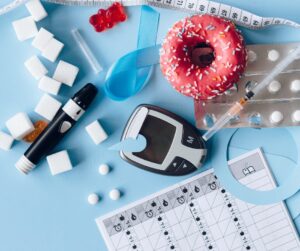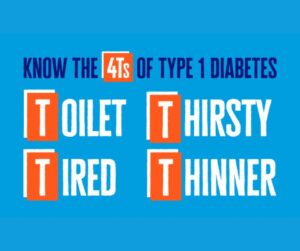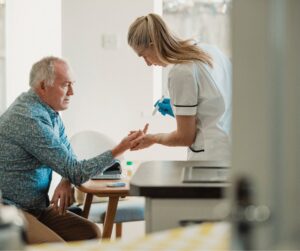This month, we have Hannah discussing National Diabetes Week. Hannah is a Registered Nurse and our former Nursing Team Leader at KompleteCare, who has since moved over to the KC Skills Centre. Her role as Clinical Training Coordinator takes up most of her time, delivering quality clinical training (including Diabetes Care!).
As we roll into National Diabetes Week, it’s the perfect time to raise awareness.
The main focus is ensuring more people know the signs and symptoms, early detection, get early diagnosis and are able to access early intervention and support.
Let me ask you some questions:
- Do you know what diabetes is?
- Do you know the signs and symptoms of type 1 diabetes?
- Do you know the signs and symptoms of type 2 diabetes?
- Are you aware of the risk factors?
If you answered no to one of the above questions, I highly encourage you to keep reading!
1 in 3 people underestimate the prevalence of diabetes. What does that mean?
It means that we need to raise awareness around the risks, the symptoms, the prevention and the care and management because so many of us think that diabetes affects only some and isn’t very serious when It’s actually the opposite.
Diabetes is a severe and complex condition where a person is unable to maintain therapeutic levels of glucose in their body. In a healthy human being, the pancreas produces insulin to convert glucose into energy. In a diabetic, insulin is either not produced at all (Type 1) or insufficient amounts of insulin are produced, also known as insulin resistance (Type 2).
The signs and symptoms of diabetes include:
- Increase and frequent urination
- Increased thirst
- Tired, fatigued, lethargic
- Losing weight (Type 1)
- Gradual weight gain (type 2)
- Hunger
- Infections
- Blurry vision
- Headaches
- Mood swings
- Dizziness
- Leg cramping
- Slow-healing wounds or cuts
Type 2 Diabetes
Currently, there are an estimated 500,000 people living with type 2 diabetes, and they don’t even know it. This is called silent type 2.
Diabetes Australia has a free risk calculator that can help you determine if you are at risk of developing type 2 diabetes. It’s free and a great starting point to assist everyone in making changes and potential delay and prevention.
There are some very serious complications for those living with Type 2 which include:
- Heart Attack
- Stroke
- Kidney damage
- Limb amputation
- Blindness
Type 1 Diabetes
The four primary symptoms of Type 1 are:
- Tired
- Thirsty
- Toilet
- Thinner
We refer to these as the 4 T’s. These symptoms can develop rather quickly if someone is potentially type 1 diabetic and are potentially life-threatening if gone untreated. This means it’s crucial to be aware of the symptoms and get them checked.
Unfortunately, type 1 diabetes cannot be prevented; this is a lifelong disease but can be managed with early detection, compliance, and management.
How can you help yourself?
- Eating healthy, balanced meals
- Exercise
- Eliminating or minimising alcohol and smoking
The message for National Diabetes Week 2023 is “It’s About Time”.
The message is clear; it’s about time people start putting themselves first in their busy lives. It’s essential to look after yourself. Even something that may seem minimal to you could potentially be a sign or symptom. It’s essential to know what to look out for and get to know what the “norm” is for your body. You could save your life by putting yourself first.
To summarise my message, please put yourself first. Listen to your body and never ignore symptoms. Early detection and intervention are essential and, in most cases, lifesaving.
There is no harm in getting tested or checked, so if you notice anything unusual, book an appointment with your GP!










